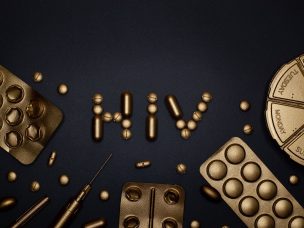Health Disparities
Experiencing Racism May Increase Stroke Risk in Black Women
Trend exists for both self-reported and definitively confirmed stroke incidence Black women reporting having experienced interpersonal racism may have higher risk for having a stroke, according to a study published online Nov. 10 in JAMA Network Open. Shanshan Sheehy, Sc.D., from the Slone Epidemiology Center at Boston University, and colleagues examined the association of...
Neighborhood Disadvantage Tied to Higher Risk for Autism Diagnosis
Rates of autism diagnosis also higher for children of mothers from racial minority groups Children residing in more disadvantaged neighborhoods at birth have a higher likelihood of an autism spectrum disorder (ASD) diagnosis, according to a brief report published online Nov. 15 in JAMA Psychiatry. Xin Yu, from the Spatial Sciences Institute at the University of...
Socioeconomic Factors Affecting HIV Risk
A South African study reveals that among individuals of lower socioeconomic status, men are less likely than women to seek HIV testing, while women from similar backgrounds who engage in risky sexual behavior are at greater risk of HIV infection. South Africa has one of the highest HIV rates in the world, affecting about 19.1%...
How Race and Socioeconomic Status Impact Food Allergy Disparities
Food allergies disproportionately impact low-income, non-White families for a wide variety of complex, intersectional reasons. The presence of food allergies is increasingly common in children and is associated with a significant financial and psychological burden on pediatric patients and their families. The increasing trend of allergies has been pervasive for all children, but the impact...
Dr. Isaretta Riley : Changes in Medicine since the Civil Rights Movement
One thing I will say is that the fact that I’m here as a physician, the fact that our work at Duke, right there was a time when Black people could not go to Duke for school and could not be faculty there. So that by itself, the fact that I’m here, and I went to...
Dr. Isaretta Riley: Health Literacy
Transcript: I often do what I say, is double talk where I will use the technical medical language, but then I’ll follow it up with more of a layman’s talk. So therefore, I don’t assume whether you know it or not. And so I just make sure that I’m talking in a manner that everyone...
Ethnic and Rural/Urban Disparities in HIV in South Carolina
This study from South Carolina shows that HIV prevalence is notably higher among Black individuals, and those living in urban areas face a slightly greater risk of contracting the infection. The spread of sexually transmitted infections (STIs) has increased dramatically over the past 10 years, reaching an all-time high in 2019. STIs are not distributed...
Dr. Isaretta Riley: Health Disparities in the Pulmonary Arena
Transcript: Hi, everyone. I’m Isaretta Riley. I am an assistant professor in the division of pulmonary allergy and critical care at Duke University School of Medicine. I am the Vice Chief of diversity, equity and inclusion. And I’m also the co director for the community engagement and dissemination Corps, which is part of our Health...
For the Best Stroke Care, Where You Live Matters
Key Takeaways Timely care after a stroke is difficult for people in poor areas to receive Those in the poorest neighborhoods are significantly less likely to get clot-busting drugs or procedures, Canadian research shows Cost was not a factor in this study, because everyone in Canada has health insurance Poor people are less likely to...
More Medical News














